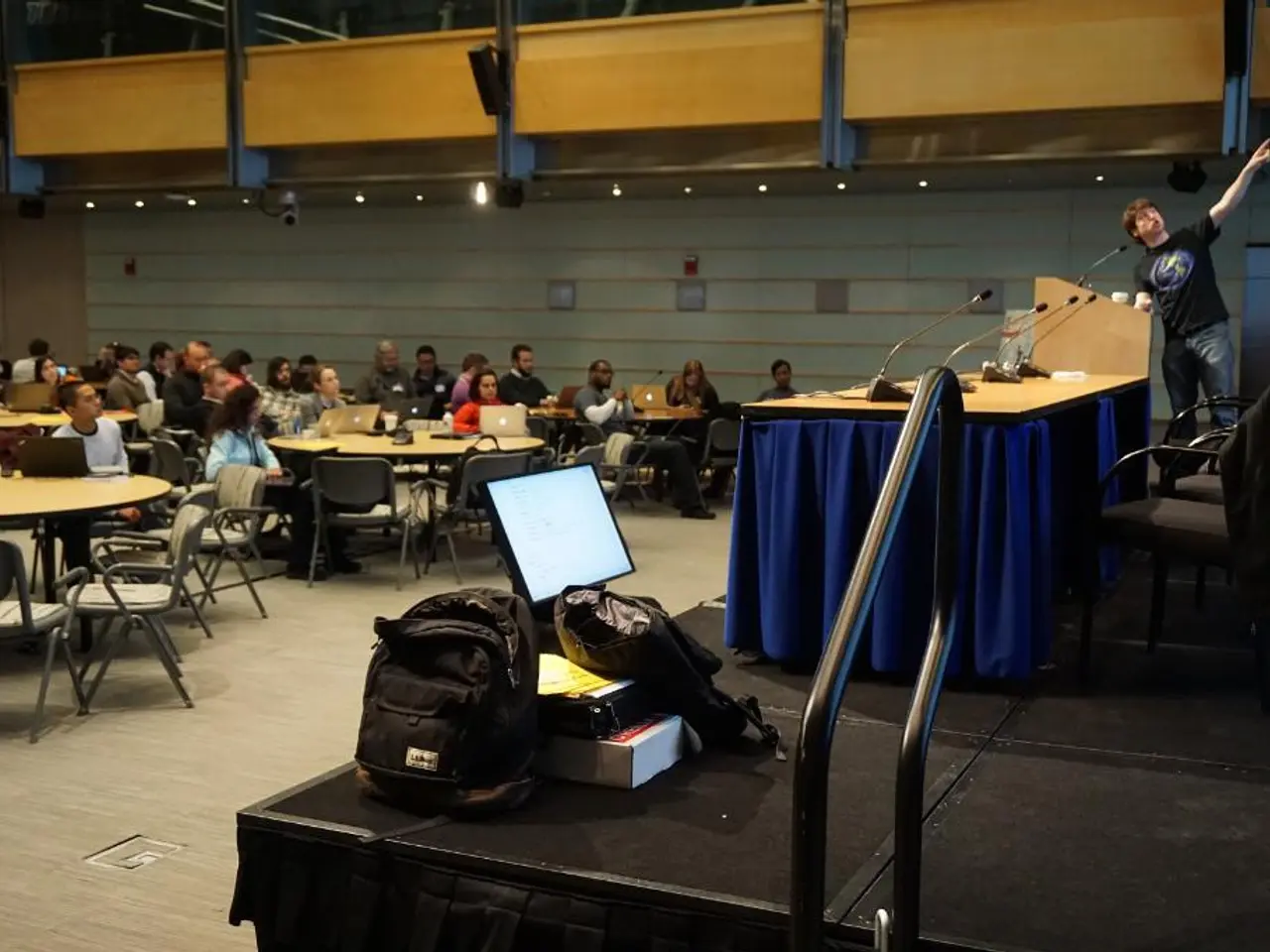The impact of loneliness, rather than solitude, on cognitive function
=====================================================================
In a groundbreaking study, researchers have found that hearing impairment can significantly worsen memory and verbal fluency, particularly in older adults who feel lonely but are not isolated. The study, conducted over nearly 18 years with participants around 61 years old, emphasises the importance of early hearing care and interventions aimed at fostering meaningful social connections and emotional resilience for older adults who are socially active but emotionally isolated.
The research, published in the Journal of Neurology, Neurosurgery, and Psychiatry, reveals that the more severe and faster the hearing loss, the greater the decline in both memory and verbal fluency. Hearing loss in older adults has been linked to an increased risk of cognitive decline, including dementia.
Matthias Kliegel, a researcher involved in the study, stated that they found people who were not socially isolated but who felt lonely saw their cognitive decline accelerate when they were deaf. Charikleia Lampraki, another researcher, added that simple interventions like addressing hearing loss early with hearing aids may help reduce loneliness and preserve cognitive health, especially for those socially engaged yet emotionally isolated.
The study examined the relationship between self-reported hearing impairment and two cognitive domains: episodic memory and executive function. The findings highlight that feeling lonely despite having friends can leave older adults more vulnerable to cognitive decline when their hearing worsens.
The study grouped participants into three profiles combining objective isolation and subjective loneliness. Isolated and lonely participants performed worse cognitively than those neither lonely nor isolated. Memory slipped faster as hearing worsened, with a nonlinear cognitive decline. A modest worsening of hearing translated into steeper memory loss for non-isolated but lonely people.
The effect was domain-specific: memory dropped more sharply than verbal fluency for the same hearing decline in non-isolated but lonely people. For non-isolated but lonely people, hearing impairment had a stronger negative effect on episodic memory than for others.
To combat this issue, effective interventions include early hearing loss intervention, fostering meaningful social connections, and resilience-building strategies focused on emotional quality rather than quantity of social contacts. Community programs, intergenerational activities, accessible social events, and digital engagement platforms can support both social presence and emotional connection, helping reduce loneliness and preserving cognitive health.
In conclusion, combining early hearing loss treatment to remove sensory barriers with interventions targeting emotional isolation through meaningful and resilient social engagement is most effective for older adults who are socially active yet emotionally isolated with hearing loss. The study underscores the importance of addressing hearing loss and loneliness in older adults to preserve cognitive health and quality of life.
- The findings of the study, published in the Journal of Neurology, Neurosurgery, and Psychiatry, suggest that early interventions for hearing loss, like the use of hearing aids, could potentially assist in reducing loneliness and preserving mental health, particularly in older adults who are socially active but emotionally isolated.
- In the study, it was observed that hearing impairment, especially when combined with feelings of loneliness, can have a significant impact on a person's memory and verbal fluency, so it's crucial to consider health-and-wellness strategies that address both mental-health and medical-conditions related to hearing comprehensively.




